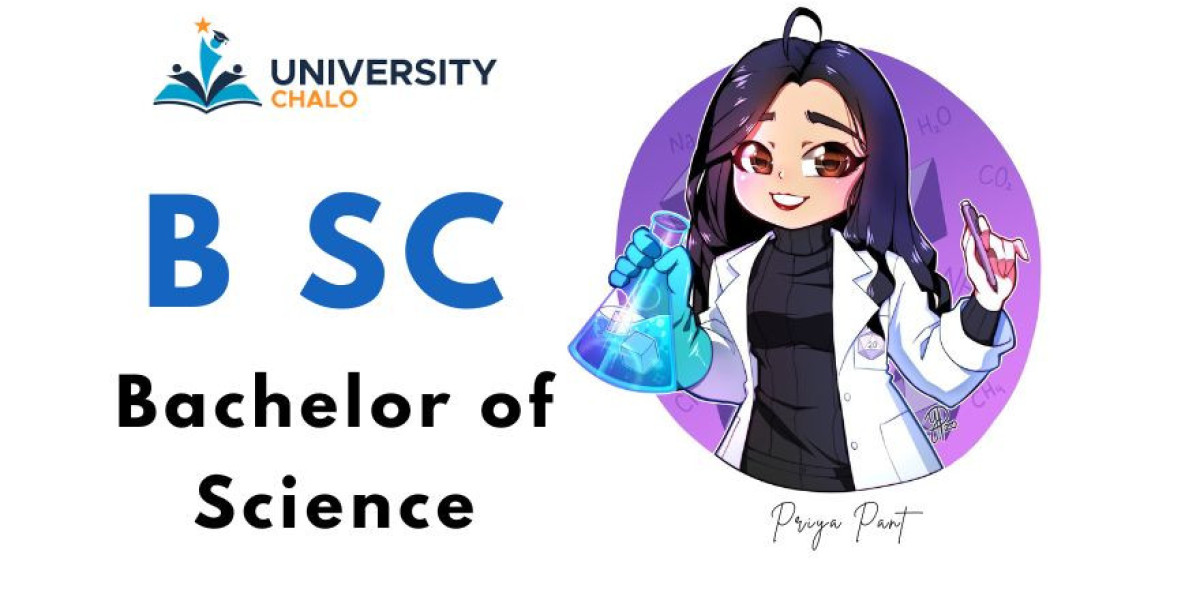In the modern world, where science and technology are advancing at an unprecedented pace, Biotechnology stands at the forefront of innovation. A Bachelor of Science (B Sc) in Biotechnology is an exciting degree that combines biology with technology to solve some of the world’s most complex problems. From developing new medicines and improving agricultural methods to creating sustainable energy sources, biotechnology is shaping the future. This article will guide you through the significance of a B Sc in Biotechnology, the skills you’ll gain, and the career opportunities it opens up.
What is Biotechnology?
Biotechnology is a field of science that uses living organisms, cells, and biological systems to develop products and technologies that improve our lives. It plays a critical role in various sectors, such as healthcare, agriculture, environmental conservation, and industrial processes. With advancements in genetic engineering, biochemistry, and molecular biology, biotechnology is helping us tackle challenges like disease treatment, food security, and sustainable development.
Why Pursue a B Sc in Biotechnology?
A B Sc in Biotechnology is a popular choice for students interested in science, technology, and innovation. Here are some key reasons why pursuing this degree can be highly rewarding:
Growing Industry: Biotechnology is one of the fastest-growing industries worldwide. From developing new vaccines and drugs to improving crop yields and creating eco-friendly biofuels, the demand for biotechnologists is on the rise. As technology advances, more opportunities are emerging in both research and practical applications.
Diverse Applications: Biotechnology is not limited to one area of study. It has a broad range of applications in medicine, agriculture, environmental science, and industry. This means you can choose to specialize in an area that aligns with your passion, whether it’s working on genetic engineering, improving food production, or developing sustainable energy solutions.
Innovative Research: The biotechnology field is driven by cutting-edge research. As a biotechnology student, you’ll have the opportunity to work on exciting projects that can lead to real-world innovations. Whether it’s finding new ways to fight diseases or creating eco-friendly materials, your work can have a meaningful impact on society.
Global Demand: Biotechnology is a global industry, and biotechnologists are in high demand across various countries. With a B Sc in Biotechnology, you’ll have the chance to work with leading research institutions, pharmaceutical companies, and agricultural organizations worldwide.
Areas of Study in a B Sc in Biotechnology
A B Sc in Biotechnology covers a wide range of subjects, combining biology, chemistry, and technology. Here are some of the main areas you’ll study:
Genetic Engineering: Genetic engineering involves modifying the DNA of organisms to achieve desirable traits. This is used in medicine to create new treatments for genetic disorders and in agriculture to produce crops that are more resistant to diseases and pests.
Molecular Biology: Molecular biology focuses on the study of cells, proteins, and DNA. Understanding how cells function at the molecular level is essential for developing new medical therapies and improving industrial processes.
Microbiology: Microbiology is the study of microorganisms, such as bacteria, viruses, and fungi. In biotechnology, microorganisms are often used to develop antibiotics, vaccines, and enzymes for industrial applications.
Bioprocess Engineering: Bioprocess engineering involves the use of biological materials in industrial processes. This includes using microbes or enzymes to produce biofuels, pharmaceuticals, and biodegradable materials.
Bioinformatics: Bioinformatics combines biology with computer science to analyze biological data, such as DNA sequences. This is a rapidly growing field that helps researchers understand genetic information and develop personalized medicine.
Skills Acquired Through a B Sc in Biotechnology
A B Sc in Biotechnology equips students with a range of scientific and technical skills, as well as problem-solving and analytical abilities. These skills are highly valuable in biotechnology and other related fields:
Laboratory Techniques: Biotechnology students gain hands-on experience in laboratory work, learning techniques such as DNA extraction, gene cloning, and protein analysis. These skills are essential for research and development in pharmaceuticals, agriculture, and environmental science.
Data Analysis: Biotechnology involves collecting and interpreting complex biological data. You’ll learn how to analyze data from experiments and draw meaningful conclusions, which is a critical skill for research and industry roles.
Problem-Solving: Biotechnology is about solving real-world problems, such as improving healthcare or finding sustainable energy sources. You’ll develop the ability to think critically and create innovative solutions to challenges.
Communication: As a biotechnologist, you’ll often need to communicate your findings to other scientists, policymakers, or the general public. You’ll learn how to present your research clearly and effectively through written reports, presentations, and collaborative projects.
Interdisciplinary Knowledge: Biotechnology combines biology with chemistry, physics, and computer science. This interdisciplinary approach allows you to apply your knowledge in various industries, making you a versatile professional.
Career Opportunities After a B Sc in Biotechnology
A B Sc in Biotechnology opens up a wide range of career opportunities in research, healthcare, agriculture, and industry. Here are some of the exciting careers you can pursue after completing your degree:
Biomedical Scientist: Biomedical scientists work in laboratories to research diseases and develop treatments. They play a crucial role in finding new ways to diagnose and treat illnesses like cancer, diabetes, and genetic disorders.
Genetic Engineer: Genetic engineers use advanced techniques to modify the DNA of plants, animals, or microbes. They may work on creating genetically modified crops that are resistant to pests or diseases, or they may focus on gene therapy to treat human genetic conditions.
Biotechnology Researcher: Researchers in biotechnology work in academic institutions, research centers, or private companies to develop new technologies. Their work can range from improving crop yields to developing eco-friendly industrial processes.
Pharmaceutical Scientist: Pharmaceutical scientists focus on developing new drugs and vaccines. They work closely with researchers and healthcare professionals to create treatments for diseases and improve public health.
Agricultural Biotechnologist: Agricultural biotechnologists work on improving crop production and developing sustainable farming methods. This can include creating drought-resistant crops or developing biopesticides that are less harmful to the environment.
Environmental Biotechnologist: Environmental biotechnologists use living organisms to clean up polluted environments, produce biofuels, or develop sustainable waste management systems.
Universitychalo: Helping You Choose the Right B Sc in Biotechnology Program
Selecting the right B Sc in Biotechnology program is a critical decision that can shape your career path. This is where Universitychalo comes in. Universitychalo is an educational platform that helps students find the best universities and programs that match their career goals.
Here’s how Universitychalo can assist you:
Detailed Information: Universitychalo provides in-depth information about universities, their biotechnology programs, faculty, research opportunities, and campus life, making it easier for students to make informed decisions.
Career Guidance: If you're unsure about which specialization to choose or which university is best for your interests, Universitychalo offers personalized career guidance to help you choose the best path.
Admission Support: Applying to universities can be a challenging process. Universitychalo offers support with applications, deadlines, and scholarships, ensuring that you have all the information you need to succeed.
Conclusion
A B Sc in Biotechnology is a versatile and future-focused degree that offers countless opportunities to work on cutting-edge scientific innovations. Whether you’re interested in healthcare, agriculture, or environmental science, biotechnology opens doors to impactful careers that improve lives and protect the planet. With the support of platforms like Universitychalo, students can find the right biotechnology program to set them on the path to success in this dynamic and rapidly evolving field.



